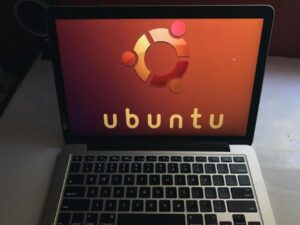The Linux Foundation is offering a cloud engineer bootcamp that offers a certification in six months for one of the highest-paying jobs in tech.

Image: vladwel, Getty Images/iStockphoto
As the COVID-19 pandemic rages and job losses continue, the Linux Foundation is launching its first cloud engineer bootcamp to train students to fill critical computing roles across a wide range of companies. The online, self-paced, instructor-assisted bootcamp is designed to train students in as little as six months for cloud engineering jobs that offer some of the highest salaries in the IT industry, with median salaries of $146,000.
Included in the Linux Foundation Cloud Engineer Bootcamp are courses on the Essentials of Linux System Administration (LFS201), Linux Networking and Administration (LFS211), Containers Fundamentals (LFS253), DevOps and SRE Fundamentals: Implementing Continuous Delivery (LFS261), and Kubernetes Fundamentals (LFS258).
Also included are two certification exams students will take to show their skills and progress – the Linux Foundation Certified System Administrator Exam (LFCS) and the Certified Kubernetes Administrator Exam (CKA).
SEE: Cross-training toolkit (TechRepublic Premium)
The training, which also includes dedicated online support from instructors, dives into a wide range of curriculum, from Linux at the operating system layer and moving up the stack to DevOps, cloud, containers, and more. Students will have access to a bootcamp-specific online forum to interact with other students and instructors, and will have access to instructors through live virtual office hours five days per week.
Students who spend 15-20 hours per week on the coursework and their studies can expect to complete the bootcamp in about six months, according to the Linux Foundation. Successful candidates will earn training badges for the LFCS and CKA certification exams and for completing the course, giving prospective employers evidence of their qualifications and training.
Through June 17 the cloud engineer bootcamp training is priced at an introductory rate of $599, which is $400 off its regular $999 fee for students who register early. The fee provides students with access to the course materials for 12 months.
“It’s a pretty safe bet that cloud is going to be a standard part of computing and communications as far out as the eye can see,” said Clyde Seepersad, the general manager of training and certification for the Linux Foundation. “Nobody’s setting up their own servers anymore. You hear it more often as the computing workloads started to shift from on-premises to the cloud.”
The bootcamp was created to fill those needs after hearing from many industry representatives about their difficulties in finding qualified cloud engineers to hire in a wide range of jobs, said Seepersad. “And the pandemic adds fuel to this whole thing” as companies equipped millions of workers to do their jobs from home, which proves the importance and real-life value of cloud computing.
“It’s a new chapter for us,” Seepersad said of the bootcamp’s creation. “We have always had weeklong instructor-led online training programs and self-paced online programs. This is our first time with a training model that includes a significant amount of live instructor support.”
The online nature of the curriculum is perfect for students in the midst of the coronavirus pandemic because it allows them to train from home while maintaining social distancing and personal safety, he added.
“Programs like this, which are delivered virtually, have become the more practical choice due to the pandemic and the ability to study from home or anywhere as people can work it into their schedules,” he said. “Students can avoid going to a physical location for classes during the pandemic and continue to work in their existing jobs if they are working. Everybody needs to find that balance of their day job and their responsibilities to their families to be able to do this.”
The coursework and the delivery of the materials are designed to be welcoming for people from underrepresented communities, said Seepersad. “Online you are a name, and there is a welcome mat,” he said. “It can be intimidating to have to go into a physical classroom where you stick out.”
The Linux Foundation launched this first bootcamp after spending a lot of time planning what would be needed for students and employers that would want to hire its graduates.
“We wanted to ensure that any program we put out there is not just well-designed but relevant to the market and that we are able to fully support it,” he said. “Some students will be entirely self-sufficient, but not most students. We want them to finish the course. Our whole goal strategically as an organization is that we want these folks trained and out there in the market because that’s one of the necessary conditions to support the ongoing growth of cloud computing.”
The curriculum was carefully reviewed, selected, and combined from existing Linux Foundation course offerings to provide students with the most critical cloud skills without requiring years of schooling, said Seepersad.
“It’s enough to build people up, but we’re under no illusion that this is the be all and end all,” he said. “This gets people in the front door and there is a lot more that they will learn as they proceed in their careers. You get in and you are competent and there are 100 directions you can go in your career.”
That sounds just fine to Carlos Silva, a 52-year-old West Palm Beach, FL, resident who has worked in IT, as an EMT, and as a hotel industry hospitality worker over the last 30 years.
Silva registered for the cloud engineer training recently as a path to gain skills he hopes will lead to an IT career that pays well and lasts for a long time.
He lost his job recently as a banquet manager at a hotel due to COVID-19 business closures and decided to use this time to train as a cloud engineer after several suggestions from a brother, who is an open source software developer.
“It will be a long time before the hospitality and banquet work comes back after the pandemic is over,” said Silva. “So I decided to get back into IT,” where opportunities appear to be promising in cloud computing. “I’ve been interested in getting into open source software as well. This is something I’ve put on a back burner for a while. Now seems to be the right time.”
Also see
Source of Article



